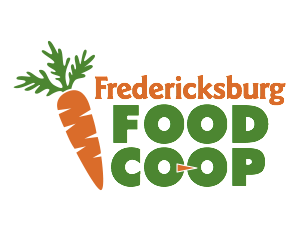Food co-ops and their appearance in Fredericksburg
3 min read
The new community-owned grocery store is set to open in early 2021 | Fredericksburg Food Co-op
By LAUREL MEYER
Staff Writer
Food cooperatives positively impact communities all over the United States, and one is soon to reach the Fredericksburg community.
Cooperatives, also called co-ops, have existed for hundreds of years, however they have been receiving more attention in recent years. A co-op is an autonomously run business or organization that is owned and controlled by the people who use its products, supplies or services. Unlike a traditional business, each member gets a voice in how the business is run. Co-ops follow seven principles that also make them differ from traditional businesses. These principles are: voluntary and open membership, democratic member control, member economic participation, autonomy and independence, education, training, information, cooperation among cooperatives and concern for community.
There are many different types of cooperative businesses, however food cooperatives have become increasingly popular in the United States. As people have become more concerned about how their actions impact environmental sustainability and the importance of eating healthy, whole foods, these co-ops have gained interest. People are also recognizing the importance of supporting small and ethical businesses as opposed to large corporations, which makes opting for food co-ops more favorable.
Contrary to popular belief, co-ops are not always non-profit organizations. As stated by the University of Alaska Business Enterprise Institute, “the purpose of enterprise is not to accumulate profit for investors, but to meet the goals and aspirations of its members.” Many cooperatives are registered under their state cooperative corporation or cooperative association statute. Businesses registered as limited liability companies, for profit corporations or nonprofit corporations can and do function as cooperatives if they follow the cooperative principles.
Since co-ops don’t seek to maximize profits but rather make decisions to maximize service to their owners and community, they are more beneficial to local communities than big corporations, as supporting the local community is their main purpose. They often stabilize communities because they are community-based business anchors; and distribute, recycle and multiply local expertise and capital within a community. The Fredericksburg Food Co-op that is currently under construction will provide a more sustainable grocery option for community members while supporting local farmers and other local suppliers. This will be the first food cooperative to reach the Fredericksburg community.
According to the chairman of the board of directors for the Fredericksburg Food Co-op, Richard Larochelle, “Co-ops are important because they are a way for people to take ownership in their community.”
The vision for this co-op is “to implement the most environmentally sustainable practices in all aspects of our operation and to join others in working toward positive environmental goals for our community,” as stated from the Fredericksburg Food Co-op’s website.
The Fredericksburg Food Co-op will benefit Fredericksburg’s local community in many ways.
“Food co-ops support local farmers who cannot sell to larger grocery stores,” said Larochelle. They will emphasize buying locally sourced food and products. Other core values of this co-op are engaging with and seeking to benefit all residents of the community, and centering environmental sustainability in everything they do. As the co-op is just less than a mile away from UMW’s Fredericksburg campus, it will also provide students living on campus with a new place to shop for their grocery needs.
This cooperatively run grocery store will be located on 320 Jefferson Davis Highway. The store is expected to open at the start of 2021. It will be a full service grocery store that will offer locally grown foods and natural and organic products, and it will also serve as a gathering place for people to collaborate with community-based organizations.


